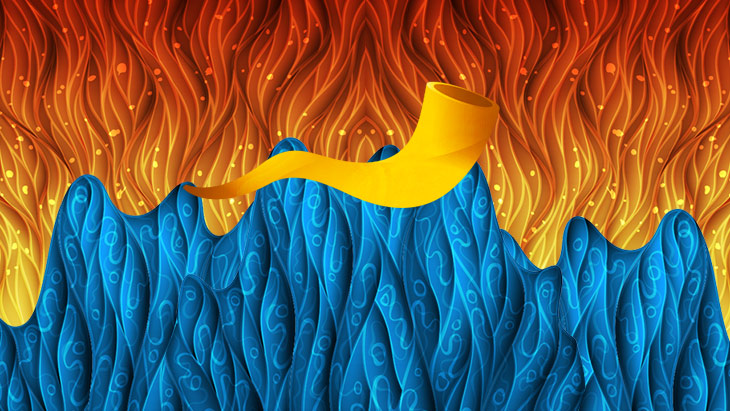 Iran’s Attack on Israel
Iran’s Attack on Israel


4 min read
Both our bodies and our souls require sustenance and nourishment.
What's essential?
The term has gained considerable prominence in this time of global pandemic. Professions that are deemed essential are granted the privilege of being exempt from stay-at-home mandates and lockdowns.
It's surprising what some state governments are willing to include as so “essential” that they override any possible threats to the health and welfare of society. Florists can still deliver bouquets in Delaware and golf courses can stay open in Arizona. New York, while forbidding physical exercise in gyms and indoor dining in restaurants even with social distancing and the wearing of masks, seems to acknowledge that liquor stores need to remain open.
So what is really “essential”? It's an important question to answer during these days leading up to Rosh Hashanah and Yom Kippur.
The best answer I’ve heard is that the most essential thing in life is to be wise enough to know what is truly essential. And that’s the primary purpose of the High Holy days.
Throughout the year we spend our days pursuing things that don’t really have any lasting value or significance. And once a year there comes a time when we get off the treadmill of our lives to stop and rethink. While governments are busy trying to resolve the actual meaning of essential, Judaism has provided us with the most powerful and profound response by way of a Jewish law.
Judaism mandates countless blessings. According to the Talmud every Jew should recite at least 100 blessings daily. Yes, Tevye, there’s a blessing for a sewing machine and even a blessing for the czar. But almost all of these blessings are rabbinic. They have no source in the Torah. They come from the heartfelt desire of sages to give expression to their love of God and their gratefulness for his numerous acts of kindness. Yet there are only two blessings whose source is the Torah itself and thus they have the force of biblical commandments.
They are the two – and the only two – essentials of our lives.
The first of them is the Grace after Meals. The second is the daily commandment to bless God for giving us the Torah. And what is the connection between these two blessings? The first – the blessing for food – puts into words the thanks we owe the Almighty for sustaining us physically and giving us life. The second reminds us to express gratitude for nurturing our souls and giving us a reason for living.
In Genesis, the creation of man is described as a duality of two sources. We are created from the dust of the earth. That is the key to our bodies. But bodies without souls are nothing more than corpses. Life came about when God blew into Adam some of his divine spirit. That is when we became “created in the image of God.” On Rosh Hashanah we commemorate this uniqueness with the blowing of the shofar, replicating that moment when our bodies became united with a part of divinity. God and His breath entered into our very being.
The two biblical blessings refer to the two essentials of our lives. Both our bodies and our souls require sustenance and nourishment.
The English language takes beautiful note of this historic moment. The Latin for breath is spiritus. We are alive for as long as the soul remains within us. The breath of God’s shofar makes us human. To die is to expire; it is the moment when God’s spirit, His breath, chooses to leave us.
When our bodies become aware of our spirituality, of God’s presence in our very being, we are inspired. Our souls feel God’s presence. When God decides that we have either fulfilled our purpose in life or that we are no longer inspired to do so - His decree is that we expire, and that we return His breath to him.
The two biblical blessings refer to the two essentials of our lives. Both our bodies and our souls require sustenance and nourishment. Our bodies need food. No one can deny that is essential for life. But our souls also require something equally important. Just as we eat three times a day, so too we pray the same number of moments. Food fills our stomachs; Torah satiates our souls.
In these past few horrible months we have come to recognize more than ever the real meaning of necessity. We have gone without many things, and thankfully most of us have survived. Coming face-to-face with the High Holy days we need to rethink our priorities and to pray with full hearts for the two biblical blessings that best define us. We are bodies and we also souls – and we have to bless God for giving us the opportunity to fulfill the truly “essential” needs of both.
